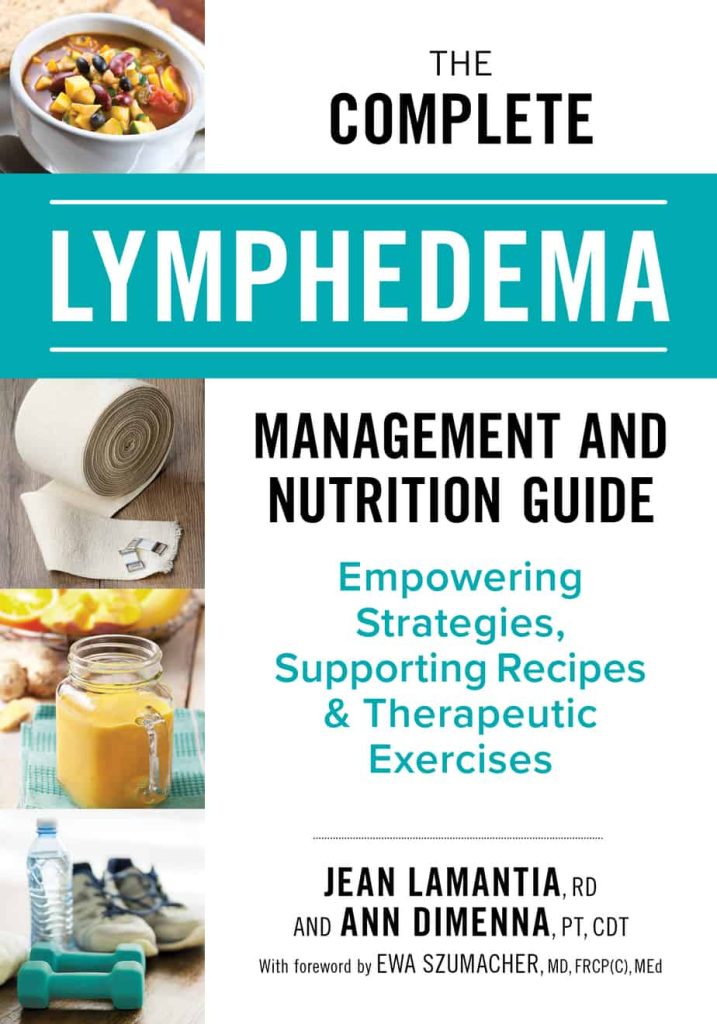Table of Contents
Lymphedema Care for Boomers
Like most systems in our body, we don’t understand how they work or what they do…until they aren’t working anymore. This is certainly true of the lymphatic system and Lymphedema Care. We might even say, especially true of the lymphatic system, as it’s rarely talked about, not studied much even in medical school and it’s barely visible in our bodies.
You might be surprised to know that the lymphatic system is as vast as our vascular system that includes all of our veins, arteries and capillaries (called the cardiovascular system or circulatory system) and that it moves about 3.0 quarts of lymph fluid per day or that it moves all of that fluid against gravity without a pump.
Ten lymphatic capillaries laying side-by-side are about the size of a human hair. They are incredibly delicate and it’s hard to believe that something so delicate could be so crucial for optimal health.

What Does the Lymphatic System Do?
There are several key functions of the lymphatic system, including;
- Transports immune cells (white blood cells) to help fight infections
- Transports fats from our diet into the blood
- Circulates fluid throughout the body and maintains proper fluid balance
It’s the 3rd function of this list that will signal to you that something isn’t right with your lymphatic system. If your lymphatic system isn’t moving fluid properly, you will experience swelling. This is swelling is called lymphedema. You have probably heard the term ‘edema’ before which means a swelling or build-up of fluids.

Other edema terms include;
- Cerebral edema – swelling in the brain
- Macular edema – swelling in the eye
- Pulmonary edema – swelling in the air sacks in your lungs
Lymphedema can also be spelled lymphoedema, as it is in the U.K. but it is the same condition.
Lymphedema is a fluid build-up due to damaged or improperly formed lymphatic vessels.
How Do Lymphatics Circulate Fluid?
Our blood circulates through arteries and veins which make sure that the cells in our body receive oxygen and nutrients. As the freshly oxygenated blood is pumped out of the heart, it leaves the heart in the aorta (a large artery).
The aorta branches out into arteries which continue to branch and become smaller and smaller until they are tiny arterioles. The arterioles then connect to a capillary which connects to a tiny vein called a venule.
The venules grow in size to become veins that channel into one large vein (the inferior vena cava) which returns the deoxygenated blood to the heart, which then sends it to the lungs. This is the vital circulatory system.
When our blood moves from the arterioles through the blood capillaries to the venules about 10-15% of the blood fluid (plasma) leaks out. The lymphatic capillaries are responsible for collecting this fluid and returning it to the bloodstream.
The Lymphatic System
The delicate lymphatic capillaries collect the blood plasma that has leaked out and transports this fluid through its own network of capillaries, lymphatic vessels, and lymph nodes on its way back to the large blood vessels in the neck called the subclavian veins which return the fluids to the bloodstream.
The lymph nodes are located throughout the body. An individual will have 600-700 nodes clustered throughout the body. The larger of the nodes would be the size of a lima bean.
The lymphatic vessels pass through the lymph nodes on their way to back to the subclavian veins. The nodes are hubs of activity – it provides immune surveillance in which immune cells that are located in the lymph nodes look for and attack foreign bacteria or virus cells.
Damage to the Lymphatic System
Damage to the lymphatic system could be to the nodes or the vessels. This could include:
- Crushing injuries
- Damage to the vessels or nodes due to surgery
- Removal of lymph nodes during surgery
- Cancer treatment
Primary Lymphedema
Lymphedema can also be a congenital condition. The condition can also develop without any apparent injury or surgery. When this happens, it is called primary lymphedema. This type more commonly affects women and tends to present itself during hormone changes such as menstruation, pregnancy or menopause. There are multiple different genetic conditions that result in lymphedema and more still to be discovered.
Secondary Lymphedema
This type of lymphedema develops due to damage to the lymphatic system. Some examples of the causes of secondary lymphedema we’ve worked within our practice include; cancer surgery that removes lymph nodes, orthopedic surgeries, and cellulitis infections.
In all of these cases, the lymphatic system was damaged and this left these individuals with painful and disfiguring swelling.
How To Manage Lymphedema
While there isn’t a cure and lymphedema is considered a chronic condition, there is a lot that one can do to help manage the condition. The most obvious would be to immediately seek the advice of a certified lymphedema therapist to get a Lymphedema Care Plan.
Certified Lymphedema Therapists could be a nurse, massage therapist, occupational therapist or physical therapist, but they have done additional training and certification in order to treat lymphedema. It is crucial that you only work with someone with the proper training and expertise.
The cornerstone of the work that you will do is called Complete Decongestive Therapy and it includes these four key components:
- Skincare
- Manual lymphatic draining (often called ‘lymphatic massage’)
- Compression bandaging or garments
- Exercise
If you are not sure where to find a certified lymphedema therapist, you can go to the National Lymphedema Network and Find a Lymphedema Therapist. They can assist you in coming up with a Lymphedema Care Plan.
Nutrition for Lymphedema Care
While there isn’t an established agreed-upon diet for lymphedema, the diet we propose in The Complete Lymphedema Management and Nutrition Guide emphasizes several key features, which include:
- Make sure you drink enough fluid. While with other edema conditions, the recommendations are to restrict fluid, lymphedema is unique and sufficient fluid is required to allow to blocked lymph to move. If it becomes more concentrated it is more challenging to move it out of the congested area
- Limit your salt intake. The most effective way to do this is to limit your use of processed and restaurant foods. If you can prepare most foods from scratch that will result in a significant reduction in your salt (sodium) intake
- Limit your fat intake. The lymphatic system is involved in transporting fat from the diet into the bloodstream and the amount of lymph your body produces will be more with a high-fat diet
- Limit your eating window to less than 12 hours. One source of lymphatic fluid in your intestines. If you reduce your eating window to less than 12 hours, your body is able to use 12+ hours in the day to help process the lymphatic fluid it has without adding more
- Eat an anti-inflammatory diet. This is largely a plant-based diet that has few added sugars and processed foods but could definitely include regular consumption of anti-inflammatory fish such as salmon, sardines and rainbow trout.
In Conclusion about Lymphedema Care
While small, delicate and nearly invisible, the lymphatic vessels play an important role in healthy fluid balance, immune system health, and digestion. If you are suspicious of swelling in your body, it’s important to determine if the swelling is lymphedema or edema from another cause as treating lymphedema early results in better control and fewer complications. If you are interested in this topic you can read more about the Lymphedema Diet and pick up your copy of The Complete Lymphedema Management and Nutrition Guide
The Authors

Ann DiMenna 
Jean LaMantia
Jean LaMantia RD and Ann DiMenna PT, CDT are a dietitian and physiotherapist duo that co-wrote the Complete Lymphedema Management and Nutrition Guide. You can find out more about them at www.jeanlamantia.com and www.markhamlymphaticcentre.com
Check out the Best 25 Cities to Stay Active in Retirement!

These statements have not been evaluated by the Food and Drug Administration. Any product(s) on this website is not intended to diagnose, treat, cure, or prevent any disease.
Always consult a licensed health care professional before starting any supplement or nutraceutical. Especially if you are pregnant or have any pre-existing medical conditions. Individual results may vary. These are from my own experience and the experience of others and only our opinions.







12 responses to “Lymphedema Care for Boomers”
This is such useful, and VITAL information. My primary profession is a Registered Dental Hygienist. We do head and neck exams on every new patient- and then once a year to check for swelling or abnormalities. As a food blogger, thoses nutrition tips peaked my interest as well. Great article.
That is so awesome you are doing that! I had issues with my dental work and even brought up the swelling in my lymph nodes and no one seemed to know what to do. They wanted to send me to an MD. Which is fine but there is so much more to your lymph system.
As a food blogger, of course I was most interested in the nutrition tips. I thought the tips on limiting the eating window and using an anti-inflammatory diet particularly interesting, because I’m working toward those for other reasons. Thanks for this!
I am so glad you were able to get good information!
Very useful article. I didn’t know that much about lymphedema prior to this. In fact, I thought this was the same condition that my aunt has, but it turns out she has lipedema!
Thanks for sharing this with us 🙂
Awesome! Thank you for stopping by!
This is a helpful post full of information for people that struggle with lymphedema issues. Thank you for spotlighting.
I am glad it could help! I think it is important information.
Wow, thank you for sharing this. After having my oldest son, 18 years ago, I developed swelling in my left foot. The doctors did all sorts of tests and chalked it up to a “fat foot”. Real technical with the term, I know. It would swell really bad in the heat and humidity. Then I hurt my back this summer and went to a chiropractor. She immediately went to work on it and explained a bit of what it was. However, this article really helps put into perspective and I can’t wait to dive into the other materials.
Unfortunately, western medicine seems to be a little behind in understanding the importance of a healthy lymphatic system. I would say it has become a part of my top things to focus on for a healthier lifestyle.
The lymphatic system really intrigues me! Thanks so much for sharing this.
It is SO interesting! I was excited to get this published!